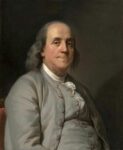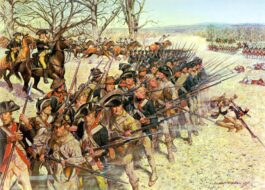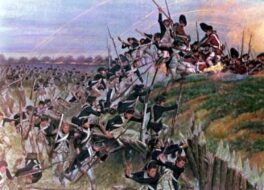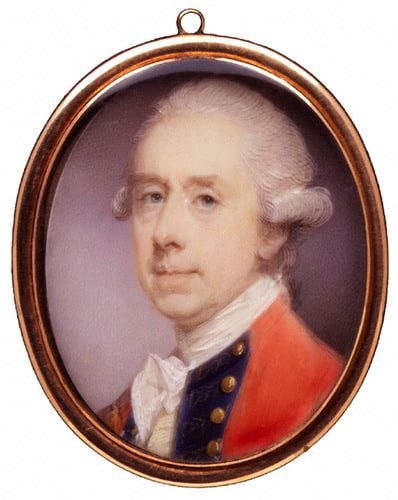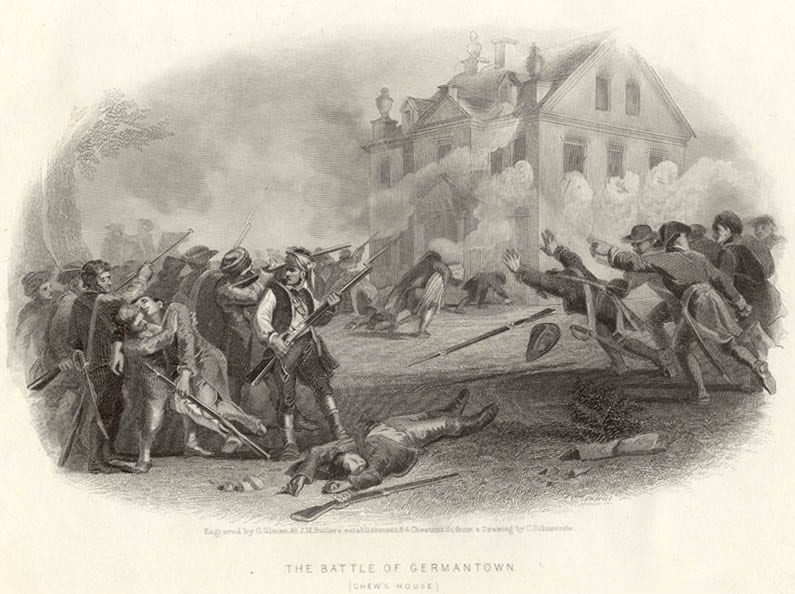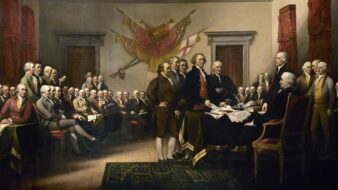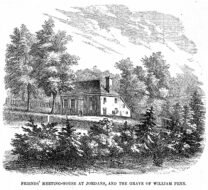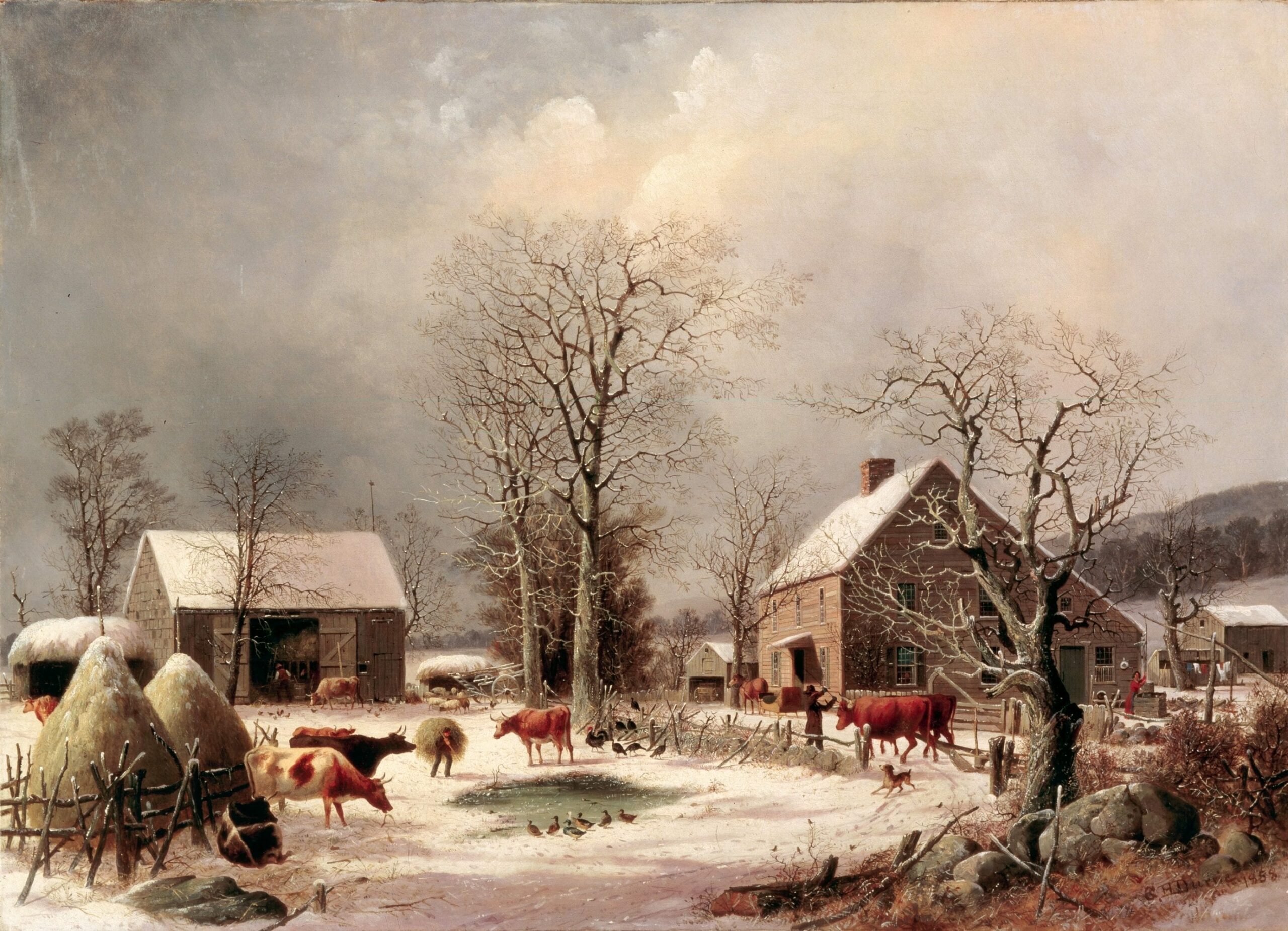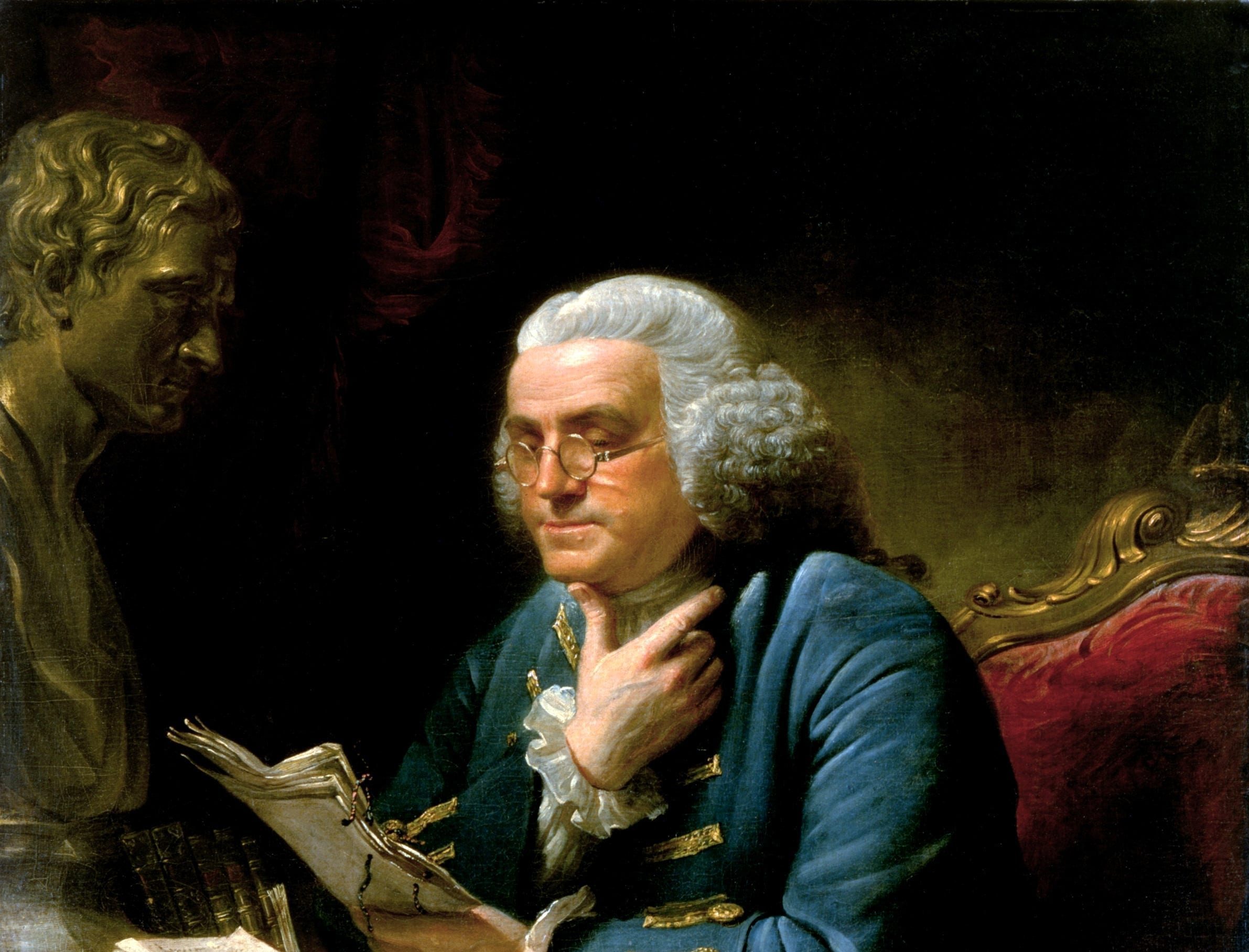

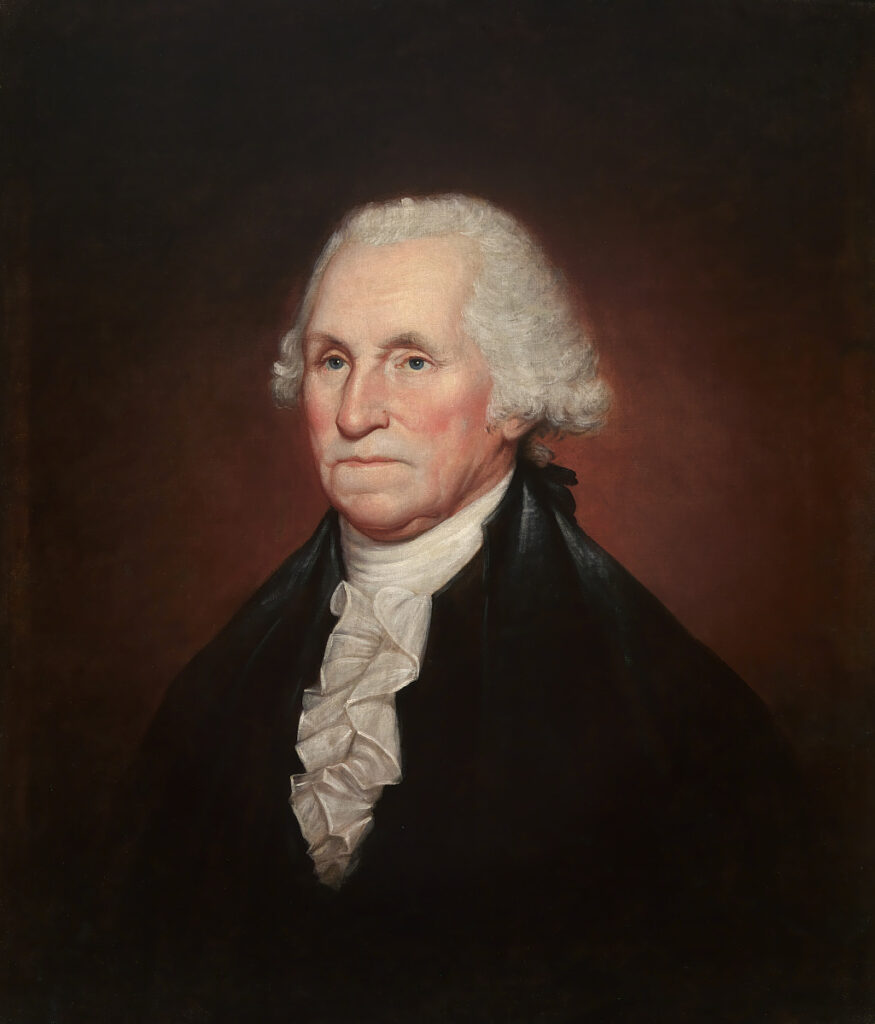
No related resources
Introduction
Most Americans cheered the Continental Army’s victory at Yorktown and the subsequent peace negotiations at Paris. But the fact that the war might soon end caused some army officers to grumble. Most had not been paid in months. Some had not been paid in years. If this was how the Continental Congress, which teetered on the brink of insolvency, treated them during a war, how would it treat them once the army disbanded? Many doubted the Congress’s 1780 promise that officers would receive a pension of half pay for life. Once the war was over, would their country forget all they had sacrificed in behalf of independence?
Encamped just north of West Point near Newburgh, New York, some of these officers fantasized about dispensing with Congress and crowning George Washington (1732–1799) as king. In 1782, when Lieutenant Colonel Lewis Nicola (1717–1807) suggested the idea to Washington, the commander-in-chief shot it down, insisting that nothing during the entire war had given him “more painful sensations” than Nicola’s proposal. Months later, did an alternative plan, which would come to be known as the Newburgh conspiracy, begin to take shape? Evidence suggests that a small number of officers (including Major General Alexander McDougall [1732–1786]) teamed up with a small number of civilian officials (including Alexander Hamilton [1755/57–1804], then a member of Congress, as well as superintendent of finance Robert Morris [1734–1806] and his assistant, Gouverneur Morris [1752–1816]) to contemplate the creation of a crisis that could lead to a central government with greater powers to tax American citizens and compensate those who had fought in the Revolution. Maybe the army would march west and leave the United States undefended. Or maybe, at war’s end, the army would refuse to disband and march to the next meeting of Congress, weapons in hand, to demand action.
The conspiracy, whatever its exact nature or motivation, was exposed when Washington learned of two anonymous letters circulating among his officers. The first announced a mass meeting on March 11, 1783. The second disparaged an ungrateful “country that tramples on your rights, disdains your cries, and insults your distresses.” He responded by canceling the March 11 meeting, informing Congress, sending a pointed letter to Hamilton announcing his determination to “rescue” his officers “from plunging themselves into a gulf of civil horror,” and calling for a new meeting of his officers on March 15. Here, he made a surprise appearance and delivered a speech condemning any attempt to undermine civilian control of American government.
Source: George Washington to Officers of the Army, March 15, 1783, Founders Online, National Archives. http://founders.archives.gov/documents/Washington/99-01-02-10840.
By an anonymous summons, an attempt has been made to convene you together—how inconsistent with the rules of propriety! how unmilitary! and how subversive of all order and discipline—let the good sense of the army decide.
In the moment of this summons, another anonymous production was sent into circulation; addressed more to the feelings and passions, than to the reason and judgment of the army. The author of the piece, is entitled to much credit for the goodness of his pen; and I could wish he had as much credit for the rectitude of his heart—for, as men see through different optics, and are induced by the reflecting faculties of the mind, to use different means to attain the same end; the author of the address, should have had more charity, than to mark for suspicion, the man who should recommend moderation and longer forbearance—or, in other words, who should not think as he thinks, and act as he advises. But he had another plan in view, in which candor and liberality of sentiment, regard to justice, and love of country, have no part; and he was right, to insinuate the darkest suspicion, to effect the blackest designs.
That the address is drawn with great art, and is designed to answer the most insidious purposes. That it is calculated to impress the mind, with an idea of premeditated injustice in the sovereign power of the United States, and rouse all those resentments which must unavoidably flow from such a belief. That the secret mover of this scheme (whoever he may be) intended to take advantage of the passions, while they were warmed by the recollection of past distresses, without giving time for cool, deliberative thinking, and that composure of mind which is so necessary to give dignity and stability to measures, is rendered too obvious, by the mode of conducting the business, to need other proof than a reverence to the proceeding.
Thus much, gentlemen, I have thought it incumbent on me to observe to you, to show upon what principles I opposed the irregular and hasty meeting which was proposed to have been held on Tuesday last; and not because I wanted a disposition to give you every opportunity, consistent with your honor, and the dignity of the army, to make known your grievances. If my conduct heretofore, has not evinced to you, that I have been a faithful friend to the army, my declaration of it at this time w[oul]d be equally unavailing and improper. But as I was among the first who embarked in the cause of our common country—as I have never left your side one moment, but when called from you, on public duty—as I have been the constant companion and witness of your distresses, and not among the last to feel, and acknowledge your merits—as I have ever considered my own military reputation as inseparably connected with that of the army—as my heart has ever expanded with joy, when I have heard its praises—and my indignation has arisen, when the mouth of detraction has been opened against it—it can scarcely be supposed, at this late stage of the war, that I am indifferent to its interests.
But—how are they to be promoted? The way is plain, says the anonymous addresser. If war continues, remove into the unsettled country—there establish yourselves, and leave an ungrateful country to defend itself. But who are they to defend? Our wives, our children, our farms and other property, which we leave behind us. Or, in this state of hostile separation, are we to take the two first (the latter cannot be removed) to perish in a wilderness, with hunger, cold, and nakedness? If peace takes place, never sheath your sword, says he, until you have obtained full and ample justice. This dreadful alternative, of either deserting our country in the extremest hour of her distress, or turning our army against it (which is the apparent object, unless Congress can be compelled into an instant compliance), has something so shocking in it, that humanity revolts at the idea. My God! What can this writer have in view, by recommending such measures? Can he be a friend to the army? Can he be a friend to this country? Rather, is he not an insidious foe? Some emissary, perhaps, from New York,[1] plotting the ruin of both, by sowing the seeds of discord and separation between the civil and military powers of the continent? And what a compliment does he pay to our understandings, when he recommends measures, in either alternative, impracticable in their nature?
But here, gentlemen, I will drop the curtain; because it w[oul]d be as imprudent in me to assign my reasons for this opinion, as it would be insulting to your conception, to suppose you stood in need of them. A moment’s reflection will convince every dispassionate mind of the physical impossibility of carrying either proposal into execution.
There might, gentlemen, be an impropriety in my taking notice, in this address to you, of an anonymous production—but the manner in which that performance has been introduced to the army—the effect it was intended to have, together with some other circumstances, will amply justify my observations on the tendency of that writing. With respect to the advice given by the author—to suspect the man, who shall recommend moderate measures and longer forbearance—I spurn it—as every man, who regards that liberty, and reveres that justice for which we contend, undoubtedly must. For if men are to be precluded from offering their sentiments on a matter, which may involve the most serious and alarming consequences, that can invite the consideration of mankind; reason is of no use to us—the freedom of speech may be taken away—and dumb and silent we may be led, like sheep, to the slaughter.
I cannot, in justice to my own belief, and what I have great reason to conceive is the intention of Congress, conclude this address, without giving it as my decided opinion, that that humble body, entertain exalted sentiments of the services of the army; and, from a full conviction of its merits and sufferings, will do it complete justice. That their endeavors, to discover and establish funds for this purpose, have been unwearied, and will not cease, until they have succeeded, I have not a doubt. But, like all other large bodies, where there is a variety of different interests to reconcile, their deliberations are slow. Why, then, should we distrust them? And, in consequence of that distrust, adopt measures, which may cast a shade over that glory which has been so justly acquired; and tarnish the reputation of an army which is celebrated through all Europe, for its fortitude and patriotism? And for what is this done? To bring the object we seek for nearer? No! Most certainly, in my opinion, it will cast it at a greater distance.
For myself (and I take no merit in giving the assurance, being induced to it from principles of gratitude, veracity, and justice), a grateful sense of the confidence you have ever placed in me—a recollection of the cheerful assistance, and prompt obedience I have experienced from you, under every vicissitude[2] of fortune, and the sincere affection I feel for an army, I have so long had the honor to command, will oblige me to declare, in this public and solemn manner, that, in the attainment of complete justice for all your toils and dangers, and in the gratification of every wish, so far as may be done consistently with the great duty I owe my country, and those powers we are bound to respect, you may freely command my services to the utmost of my abilities.
While I give you these assurances, and pledge myself in the most unequivocal manner, to exert whatever ability I am possessed of, in your favor—let me entreat you, gentlemen, on your part, not to take any measures, which, viewed in the calm light of reason, will lessen the dignity, and sully the glory you have hitherto maintained. Let me request you to rely on the plighted faith of your country, and place a full confidence in the purity of the intentions of Congress; that, previous to your dissolution as an Army they will cause all your acc[oun]ts to be fairly liquidated, as directed in their resolutions, which were published to you two days ago—and that they will adopt the most effectual measures in their power, to render ample justice to you, for your faithful and meritorious services. And let me conjure you, in the name of our common country—as you value your own sacred honor—as you respect the rights of humanity, and as you regard the military and national character of America, to express your utmost horror and detestation of the man who wishes, under any specious pretenses, to overturn the liberties of our country, and who wickedly attempts to open the floodgates of civil discord, and deluge our rising empire in blood.
By thus determining—and thus acting, you will pursue the plain and direct road to the attainment of your wishes. You will defeat the insidious designs of our enemies, who are compelled to resort from open force to secret artifice. You will give one more distinguished proof of unexampled patriotism and patient virtue, rising superior to the pressure of the most complicated sufferings; and you will, by the dignity of your conduct, afford occasion for posterity to say, when speaking of the glorious example you have exhibited to mankind, “had this day been wanting, the world had never seen the last stage of perfection to which human nature is capable of attaining.”

Conversation-based seminars for collegial PD, one-day and multi-day seminars, graduate credit seminars (MA degree), online and in-person.
